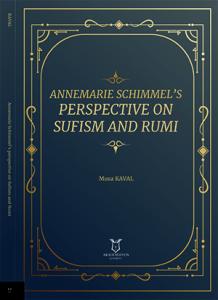Annemarie Schimmel’s Perspective on Sufism and Rumi
Özet
Annemarie Schimmel is an academic who was born in Germany. She grew up surrounded by literature and poetry during her childhood. As a bright student, she skipped two grades in middle school. At the age of fifteen, she was introduced to the Islamic world through the poetry of Rumi. As a talented student, she completed high school at the age of sixteen. The following year, at the age of seventeen, Schimmel continued her education at the University of Berlin. During her university years, her inspiring teacher Hans Heinrich Schaeder suggested that she study Rumi's Divan. After her initial readings, Schimmel captured the ideas in the poems that would influence her throughout her life and couldn't stay away from them. She always carried Masnavi, which she described as a balm that alleviated her pain during difficult times. In 1941, at the age of nineteen, she completed her thesis on the late period of medieval Egypt and obtained her doctoral degree. She taught Islamic History at the \"camp university\" established at the end of World War I. In 1945, she completed her second doctoral thesis on Mamluk History in Egypt. The same year, she started working with Friedrich Heiler, a professor of History of Religions. In 1946, she successfully passed the teaching qualification exam. In 1951, she obtained her doctoral degree in History of Religions from the Protestant Theological Faculty in Hamburg with her thesis \"The Mystical Love of Islam\". Until the age of fifty-one, she made several trips to Turkey. She gave her first lecture in Ankara in 1953. Schimmel is a renowned academic known for her studies on Islamic mysticism, particularly Rumi.

Yayınlanan
Lisans
LisansBu İnternet Sitesi içeriğinde yer alan tüm eserler (yazı, resim, görüntü, fotoğraf, video, müzik vb.) Akademisyen Kitabevine ait olup, 5846 sayılı Fikir ve Sanat Eserleri Kanunu ve 5237 sayılı Türk Ceca Kanunu kapsamında korunmaktadır. Bu hakları ihlal eden kişiler, 5846 sayılı Fikir ve Sanat eserleri Kanunu ve 5237 sayılı Türk Ceza Kanununda yer alan hukuki ve cezai yaptırımlara tabi olurlar. Yayınevi ilgili yasal yollara başvurma hakkına sahiptir.
